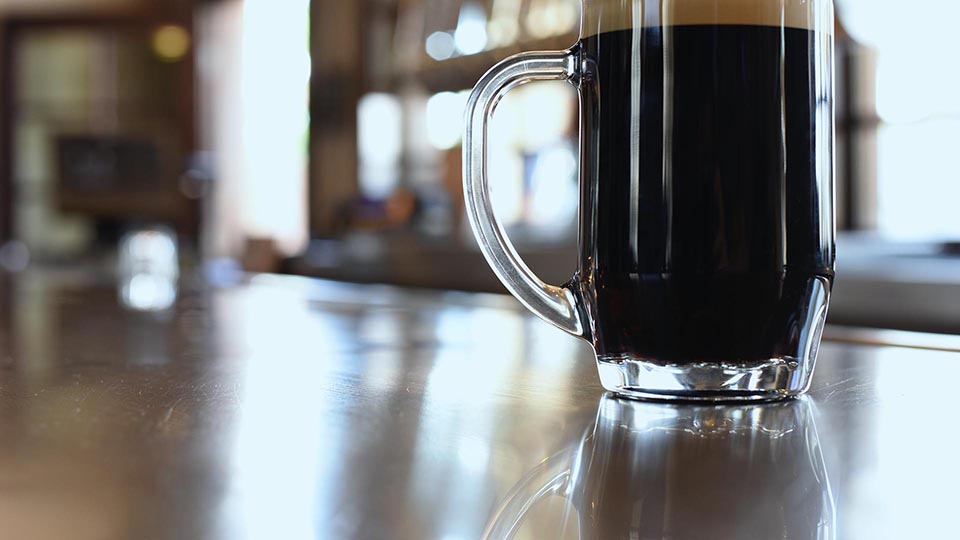California drunk driving laws are quite severe, even for a first-time offense. If you have been arrested and charged with a DUI in Riverside, it is extremely important that you contact a Riverside DUI attorney who can help you through the process. It is important to remember that the penalties you could face from a Riverside court, though serious, are not the only issues you will face following a California arrest for DUI and that you contact an experienced Riverside DUI attorney as soon as possible.
You also face the loss of your driver’s license for a significant period of time, as well as a negative impact on your job or career, and perhaps even difficulty obtaining a job for a long time to come. The Greenberg, Greenberg & Kenyon, APLC Riverside DUI attorneys represent clients who are facing DUI charges, whether a first offense DUI, a second or subsequent DUI offense, as well as the DMV hearing to determine the status of your driver’s license/driving privilege.
Don’t Fight Your DUI Charge Alone – Get Help.
First DUI Offense Penalties in Riverside
If you are arrested for a first offense DUI in the state of California, it is very important to speak to an experienced Greenberg, Greenberg & Kenyon, APLC Riverside DUI attorney as quickly as possible. A Riverside DUI attorney may be able to appear on your behalf at a DMV hearing and save your driving privileges, as well as using our negotiation skills and defense strategies against your DUI charges. In the state of California, you could potentially face up to six months in jail for a first offense DUI, a fine from $390-$1,000, and a license suspension for up to six months.
While repeat DUI offenses can result in the necessity of having an ignition interlock device installed on your vehicle, for a first offense DUI, you may or may not be ordered to have an interlock device installed. If your BAC was 0.15 percent or higher, or if you refused to submit to a chemical blood or breath test or if you were driving on a suspended license, you will likely be ordered to have an ignition interlock device installed on your vehicle for a specific period of time.
A first offense DUI can also result in three to five years of informal probation, DUI school from 3 months to 9 months, and work release in some counties, if you are sentenced to jail.
Penalties for Second and Subsequent DUI Offenses in Riverside
For a second offense DUI, the offense remains a misdemeanor, however, the jail time increases from a minimum of 96 hours in jail to a maximum of one year. Your fine will range from $390-$1,000, a driver’s license suspension for one year. You will also have to attend a DUI school for 18 months to 30 months, and, if sentenced to jail may be eligible for work release in certain counties.
For a third DUI offense and subsequent DUI offenses, the penalties increase exponentially: you could spend a minimum of 120 days in jail and a maximum of one year. You could have your driver’s license suspended for a period of two years unless you choose not to get an interlock device installed on your vehicle, in which case the suspension will be for three years. You will have to attend DUI school for 30 months and could be under informal probation. If you are sentenced to jail, you could be eligible for work release in certain counties.
Other Consequences Associated with a Riverside DUI
Beyond the penalties imposed by the court, you may have many additional consequences of your DUI conviction, including the following:
- A professional license or certification you have worked hard for could be affected by your DUI.
- Your insurance premiums could go up substantially becoming unaffordable in some instances, or you could have your insurance canceled.
- You will have to have an ignition interlock device installed in most cases, which requires a significant monthly fee.
- You will be required to obtain an SR22 certificate from your insurance company;
- Your DUI conviction could affect your current job or could make it difficult to obtain employment in the future.
- A DUI conviction could affect admission to a university as well as whether you will qualify for student financial aid.
- You will required forced to sign a Watson Advisement which can be used against you in future DUI prosecutions. A Watson Advisement requires you to state that you understand driving under the influence can injure or kill people. The purpose of the Watson Advisement is to provide a legal record that prosecutors can use against you if you are involved in a future DUI accident. By signing the Watson Advisement, prosecutors will be better able to prove willful malice in future DUIs—willful malice legally means you can be charged with second-degree murder if you are involved in a future DUI accident which results in a fatality.
- If you are a non-U.S. citizen, you could be forced to explain DUI arrest details when asked by DHS when applying for a visa, a change of status, a green card, or the ability to enter the United States.
Will I Lose My License Following a Riverside DUI?
The answer to this question depends on the level of aggressive defense mounted on your behalf following your DUI arrest. Pursuant to the 1990 Admin Per Se program, a police officer may immediately confiscate your driver’s license if you are pulled over on suspicion of DUI and meet any of the following criteria:
- Your BAC was 0.08 percent or higher while you were driving a non-commercial vehicle;
- Your BAC was 0.04 percent or more while driving a commercial vehicle;
- You are under the age of 21, and your BAC is 0.01 percent or higher, or
- You refuse a chemical test following a lawful arrest.
If you meet any of the above criteria and your driver’s license is confiscated, you will be issued a temporary 30-day driver’s license. Following the confiscation of your driver’s license, you have only ten days after you receive an Order of Suspension/Revocation from the Department of Motor Vehicles to contest your suspension in writing. If you fail to contest the suspension, your driver’s license will automatically be suspended after 30 days for a specific length of time. Unless you ask for an in-person hearing, your DMV hearing will be held by phone with a DMV officer. The length of your driver’s license suspension will depend on whether you refused a chemical test, and whether you have a prior DUI conviction within the past ten years.
If you contest or challenge your driver’s license suspension, your temporary driver’s license will remain in effect until after your hearing. For a first time DUI offense, you could face a four-month administrative suspension and a six-month suspension imposed by the court if your BAC was at least 0.08 percent. If you had your driver’s license suspended in the past and were still on probation, your license could be revoked for two years. If you are under 21, and your BAC was 0.01 percent or higher, your driver’s license would be suspended for one year. If you refused to take a chemical test, your driver’s license (driving privilege) would be suspended for one year. If a passenger in your vehicle, or a passenger in another vehicle or a pedestrian was injured as a result of your driving under the influence, your license suspension would last for one year.
What Should I Expect from a DMV Hearing?
If you are arrested for DUI in the state of California, the DMV hearing in a DUI case is an administrative procedure which only deals with your driving privileges. As of 2019, most drivers arrested for DUI may be able to continue driving without limitation if they immediately apply for an interlock ignition device. This device must remain installed in your car for four months for a first-time DUI or for one or two years for more serious DUIs. If you request an in-person hearing, then the administrative hearing will be held at a DMV office. The only issue at hand during this hearing will be to determine whether or not your driver’s license will be suspended as a result of your DUI arrest. IF you fail to request a DMV hearing within your ten-day window of opportunity, your driver’s license will automatically be suspended at the end of your 30-day grace period.
Your DMV hearing will be presided over by a DMV hearing officer, rather than a judge. Further, the burden of proof—the amount of evidence required to prove guilt—is much more easily satisfied in a DMV hearing than in a criminal proceeding. At your DMV hearing, you are entitled to review and challenge evidence, to cross-examine witnesses, to subpoena and present witnesses, and to testify on your own behalf. The DMV hearing officer will determine whether the arresting officer had probable cause to believe you were driving under the influence, whether you were, in fact, driving with a BAC of 0.08 percent or higher, and whether the officer had lawful cause to place you under arrest. There are many issues your Riverside DUI attorney can bring up at this hearing to challenge the loss of your driver’s license.
Do I Have to Take Field Sobriety Tests?
In the state of California, you will likely be asked to take field sobriety tests, and you will probably not be told that these tests are entirely voluntary. There are a number of issues which could potentially cause the officer to believe you are inebriated during these tests—even if you were not. You could have balance issues, ear problems, vision problems, could be taking certain medications which affect your balance, could have medical issues, could fail to understand the instructions, could be ill, could have injuries, could be taking the test on a sloping surface or could be wearing shoes which cause you to fail the tests. Field sobriety tests are essentially used to gather evidence against you, yet you can politely refuse to take the tests, and doing so cannot be used against you.
If an Officer Asks Me if I Have Been Drinking, What Should I Say?
It is never a good idea to answer this question when asked by an officer. You have the right to politely tell the officer that you choose not to answer any questions until you have spoken to your Riverside DUI attorney. This is not an innocent question, and no matter how you answer it, that answer will be used against you later on. Many people believe if they can just convince the officer that they only had one or two drinks, they will be allowed to go home. This is virtually never the case. Your answer is likely to be taken out of context and used against you, so it is better to simply stop talking.
Should I Take a Breathalyzer Test?
In the state of California, if you have a driver’s license, you have already consented to provide a blood or breath test if you are arrested for DUI in the state. If you refuse to take a blood or breath test when you are arrested, additional penalties could be imposed. Under California Vehicle Code Section 13353, should you refuse a chemical test you could face a one-year license suspension.
Remember, the implied consent law does not require you to submit to a hand-held breathalyzer test during a DUI stop—sometimes called a “preliminary alcohol screening.” There are no consequences to refusing this test, however, once you are under arrest, you are required to submit to a blood or breath test or submit to the penalties. On the flip side, if you submit to a chemical test, your Riverside DUI attorney may be able to challenge the results as a part of your defense.
Are There Immigration Consequences for a California DUI?
At present, most non-U.S. citizens convicted of a first offense DUI will face no adverse immigration consequences. However, under certain circumstances, driving under the influence becomes a “deportable” crime, or could make a person unable to gain admission to the U.S. Driving while under the influence of drugs—or, in rare cases, alcohol—driving while under the influence of drugs or alcohol with a child in the car, or multiple drunk or drugged driving conviction (or a DUI plus other felony convictions), can all trigger deportation. That being said, an undocumented immigrant who is arrested for DUI can face possible deportation, although the deportation would be for being in the country unlawfully, rather than for the DUI.
What is DUI Sentence Enhancement?
While a first-offense California DUI is usually charged as a misdemeanor, the penalties may be increased if there are aggravating circumstances, such as:
- A prior DUI within the past ten years;
- A DUI which causes property damage;
- A DUI which causes bodily injury;
- A high BAC level which is 0.15 percent or higher;
- Refusal to submit to a chemical test;
- Excess speed—20 mph or more over the speed limit at the time of the DUI stop, or
- Having a child who is under the age of 14 in the vehicle at the time of the DUI stop.
The level of enhanced penalty will depend on the specific circumstances. As an example, a person who has a child under the age of 14 in the vehicle at the time of a DUI arrest will probably be sentenced to additional days in jail.
What is a Rising BAC Defense?
Rising blood alcohol is, under certain circumstances, a legal defense to a California DUI. The rising BAC defense is based on the fact that after a person stops drinking, his or her BAC levels continue to rise. When an individual consumes alcohol, the BAC rises rapidly, continuing to rise until it reaches a “peak” sometime between 30 minutes and two hours after the individual stopped drinking. This means that while BAC levels could have tested at 0.08 percent or higher by the time a breath or blood test is administered, it could well have been below the legal limit at the time the individual was actually driving.
A chemical test is not always administered immediately when a subject is pulled over and might not be administered until after the arrest when the suspect is at the police station. Although DUI chemical test results are generally considered valid if given within three hours following an arrest, the BAC levels could be “on the rise” at the time of the test. Even if the individual’s BAC levels are dropping, they drop much more slowly than they rise.
What Other DUI Defenses Could I Possibly Have?
Of course, your specific DUI defense will depend on the circumstances surrounding your DUI stop and arrest, but some of the most common defenses used in Riverside DUI cases include the following:
- No reasonable suspicion to pull you over (i.e., bad stop);
- Subjective signs of intoxication—the police officer may see red or bloodshot eyes and assume you are drunk, when in fact you could have severe allergies, eye irritation, or another innocent cause of bloodshot or watery eyes;
- Problems with the field sobriety test;
- Inaccurate preliminary alcohol screening test;
- Rising BAC levels;
- Faulty breathalyzer tests;
- Improper administration of a blood test;
- Improper police conduct, or
- Other extenuating circumstances.
Getting Help for Your California DUI Charges
If you have been charged with DUI in Riverside, you need a strong criminal defense. At Greenberg, Greenberg & Kenyon, APLC we offer free initial consultations, and our phone is answered 24 hours per day with all calls returned promptly. We are a father/son team with more than 50 years of combined criminal defense and litigation experience. We are former District Attorneys, with a top priority of client satisfaction and an experienced Riverside DUI attorney will be on your side. We fully understand this is a difficult time for you, and we believe we can help you get through your DUI charges. Contact Greenberg, Greenberg & Kenyon, APLC today for exemplary legal representation.






